I am an utter failure at self-care.
It’s not because I haven’t tried, I swear! I’ve tried five million strategies: journal, schedule exercise, prioritize me-time, modify my bullet journal strategies to get more organized, set more healthy boundaries at work, practice mindfulness, embrace intuitive eating, breathe, etc., etc. and etc.
 Then the shit-show of COVID hit. I’ll spare y'all from recounting the horrors, because I know you lived it as well, and still are.
Then the shit-show of COVID hit. I’ll spare y'all from recounting the horrors, because I know you lived it as well, and still are.
Last year I facilitated sessions with dozens of teams working to avoid burnout. I bet you know these strategies well: increase awareness of your stressors, increase communication, incorporate flexibility, listen well, make space to dream, practice healthy conflict, get exercise, get enough rest, and many more.
The topics clients focus on are often things I’m personally working on as well.
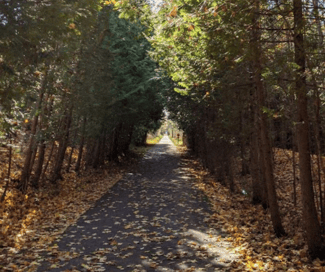 I’ve discovered trail biking during COVID. I love the wind on my face, the whir of the tires, the smell of honeysuckle, the chatter of birds, spying wildlife, and podcasts. Prior to COVID, I couldn’t fit podcasts into my life. The bike trail with podcasts are now my happy place.
I’ve discovered trail biking during COVID. I love the wind on my face, the whir of the tires, the smell of honeysuckle, the chatter of birds, spying wildlife, and podcasts. Prior to COVID, I couldn’t fit podcasts into my life. The bike trail with podcasts are now my happy place.
Recently I queued up Spotify, and what I heard changed my life.
Friends, I’m a realistic optimist, and only my trust in Brené Brown opened my mind to yet another podcast about how to care for myself and avoid burnout. Avoid burnout? Shoooot, friends, by now I’m confident that I’ve earned a Ph.D. in burnout.
I bet I’m not alone.
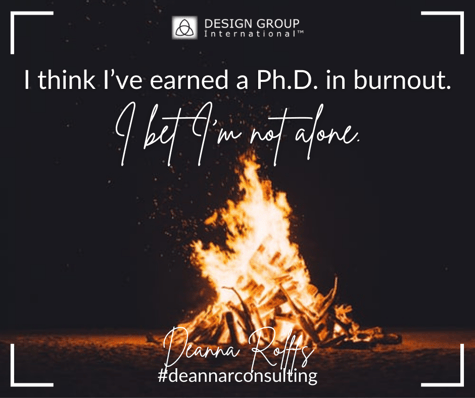
I tend to eschew typical self-help strategies that apply individualistic solutions to systemic isms like sexism and racism.
Back to my recent bike ride. I listened to an Unlocking Us podcast in which Dr.s Emily and Amelia Nagoski discuss their book Burnout: The secrete to unlocking the stress cycle. Concepts include:
- Feelings are held in your body (whaaaat?)
- Emotions have a beginning, middle, and end (what, an end?)
- Our physical stress response is different from the stressor (really? separate?)
- If you complete the stress cycle, you move through the stress tunnel, otherwise, you get stuck in the tunnel (wow, I can relate to getting stuck in the stress tunnel)
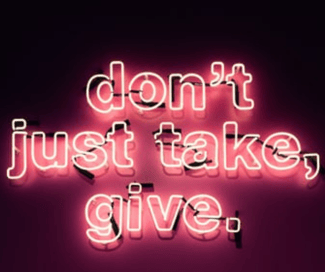 Then they unpacked Human Giver Syndrome:
Then they unpacked Human Giver Syndrome:
“Human Giver Syndrome, men and women alike, where we honestly do believe that it is the moral obligation of women to be at all times pretty, happy, calm, generous, and attentive to the needs of others. And if we at any time fail in our moral obligation to be pretty, happy, calm, generous, attentive to the needs of others, then we deserve to be punished. And if there’s no one around to punish us, we will just go ahead and punish ourselves.” -Amelia Nagoski
Then they apply it to race and racial dynamics:
“Kate Manne is clear that this is an intersectional issue, so for people of color, they’re expected to be human givers to anyone who is white. And one of the grotesque ways that this plays out is that white women, feeling so trapped by human giver syndrome take on the role of human being and feeling entitled to take anything they want to from people of color, from people with disabilities, from immigrants, from poor people. In her new book, Entitled, Kate Manne uses the language of leaning down instead of leaning in. White affluent women lean down on immigrant and Brown and Black women in America. So one of the most important things we can do is recognize it for what it is and heal the damage that it is doing to us so that we don’t take that damage out on anybody else.” -Emily Nagoski
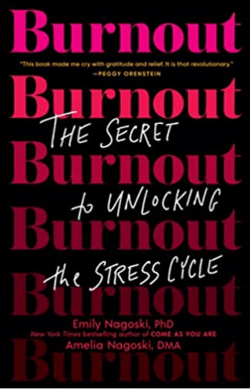
WOW, that’s it. Do you know what it’s like when someone describes your experience so closely that it's like they held a mirror up to you; they help you see yourself more clearly. I started to analyze my previous leadership roles, my choices, the stress, the 60-hour weeks, the sleepless nights, the hours of slogging through email from 10 PM to 2 AM, the attempt at supporting teams with healthy conflict, the organizational cultures and norms that beat the shit out of me, the narcissistic boss, and the vacations that I couldn't enjoy because I was downshifting from the pace of my 100-mile-an-hour everyday work life.
To make it through, I told myself that
- this is why leadership is hard
- this is why hard things take intense commitment
- I need to work smarter not harder
- find and apply the next right strategy or mindset
- address the next team challenge
- I just haven’t found the right strategies and balance yet
- just try harder
I’m learning that I missed the boat. All of these things couldn’t help me avoid burnout. In fact, the systems I worked in sucked me dry, because they are designed for burnout. That’s a whole other topic, right there.
It sucks to realize that I have only known burnout.
Today I’m in Chapter 3 of Burnout. I want to better understand the stress response cycle. As I work to apply, it feels very different and amazing. I want to avoid burnout and complete the stress cycle.
I’m tired, y'all, and I bet you are tired too.
I almost asked you this: “Are you experiencing burnout?” But I know the answer.
Self-care as separate individuals is a farce. Let’s kick burnout's butt. I’d love to learn a better way alongside you.
Fellow leaders and learners, I wish you courage and resilience for the journey.
Peace to you,


What I’m Reading & Watching
Regarding This Topic:
- The cure for burnout (hint: it isn’t self-care) via TedX by Drs. Emily Nagoski and Amelia Nagoski
- Brené with Emily and Amelia Nagoski on Burnout and How to Complete the Stress Cycle
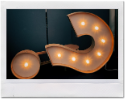
Questions for Consideration
Regarding This Topic:
- What stress response cycles are you stuck in? What works for you to complete the stress cycle?
- What do you think of the authors' point that the stressor is different from the stress response cycle? How does stress reside in your body
- Have you read Burnout: The secrete to unlocking the stress cycle? What spoke to you?
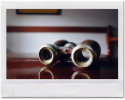
Upcoming
Leadership & Learning Topics:
- Can’t We Call It Something Nicer Than White Supremacy?
- Unpacking inclusive leadership and team practices

June 2, 2021



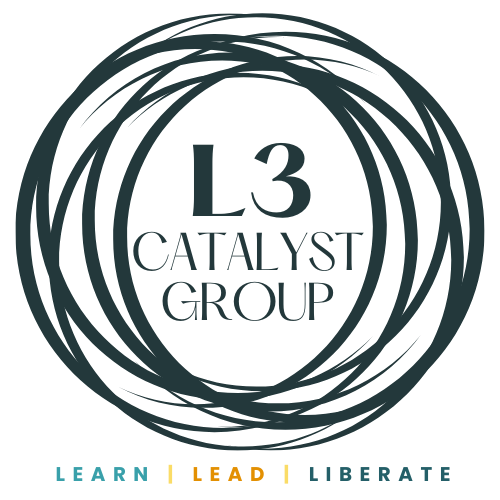
Comments